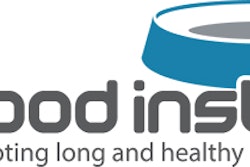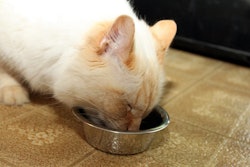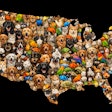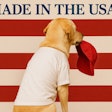
Canada imported the Great Dane’s share of pet food from the United States in 2020, with more than double the value of any other country. U.S. pet food exports to Canada topped US$800 million for the first time in 2020, rising from approximately US$600 million in 2015. Victoria Broehm, director of communications for the American Feed Industry Association, shared that and other U.S. Census Bureau Data on U.S. pet food exports.
Top 6 U.S. pet food export markets by value
- Canada
- Japan
- Mexico
- Australia
- Hong Kong
- South Korea
Overall, U.S. pet food exports in 2020 increased 5.6% over 2019, from US$1.62 billion to US$1.7 billion.
“While there was growth in U.S. pet food exports in 2020, the growth was slower than in 2019, which experienced an 11% increase in exports,” Broehm said.
This growth in 2019 and 2020 continued a trend of increasing pet food export value over the past decade. In 2010, U.S. pet food exports stood at US$1.1 billion. While the pandemic may have altered the growth trajectory of pet food exports, this long-term growth trend may continue.
“As economies start to recover and unemployment starts to go down, we might see some increase in the growth rate of exports of U.S pet food,” she said. “In many countries, pet food is seen as a luxury item, especially in those countries that are fairly new to pet ownership or feeding complete pet diets.”
In Mexico as is other Latin American pet food markets, humanization of pets continues to drive premiumization of pet foods, and U.S. pet food exports to Mexico continued a steady increase in value during the past five years. Last year, dog, cat and other pet food exports from the United States to China increased under the U.S.-China Phase One Economic and Trade Agreement, which was signed Jan. 2020. Following that accord, U.S. pet food exports to China increased 197%, from US$10.9 million to US$32.6 million.
Pet food exports under Phase One
For China’s estimated 55 million pet dog and 44 million pet cat market, the Phase One agreement lifted a ban on ruminant ingredients and an accompanying requirement for polymerase chain reaction (PCR) testing of them. The deal removed a ban on products with certain poultry ingredients. It may also reduce registration delays for pet food facilities in China by removing an audit requirement. However, China maintains tariffs on U.S. pet foods, and product registration complexities remain.
On June 15, a protocol went into effect regarding the U.S.-China Phase One Economic and Trade Agreement signed by the two countries in January. The Office of the U.S. Trade Representative, U.S. Department of Agriculture Animal and Plant Health Inspection Service (APHIS) and their Chinese counterparts reached an agreement on the certificate language for the entrance of U.S. pet foods into China’s pet food market. That agreement allowed the development of a set procedure to export U.S. pet food to China.
That protocol, developed by APHIS, facilitates the export of U.S. pet foods containing ingredients made from ruminants, a relic of the mad cow prion disease scare. In case another livestock disease breaks out, the protocol includes provisions on how to safely continue utilizing poultry products in pet food in the event of an avian influenza or Newcastle disease outbreak. The trade agreement also will remove procedural barriers, such as facility questionnaires and audits.
Steps to export U.S. pet food to China
U.S.-based pet food companies stand to benefit greatly from the trade deal, Peter Tabor, vice president of regulatory and international affairs for the Pet Food Institute, said. He outlined three steps that U.S.-based pet food companies can take in the near term.
- Review the trade agreement and the APHIS protocol
- Schedule an APHIS inspection and get approved
- Begin product registration process in China
He recommended that pet food companies act now if they wish to export to China, as the registration process likely will still take months. There may be a steep learning curve on the first few products, but should be much smoother than previously once companies get the hang of it.

















